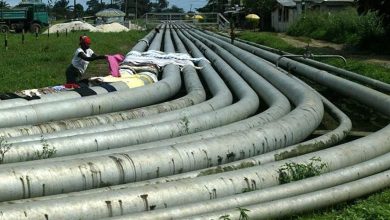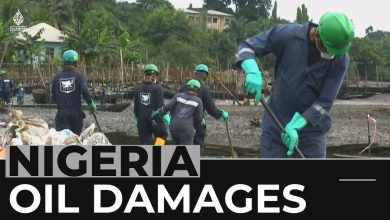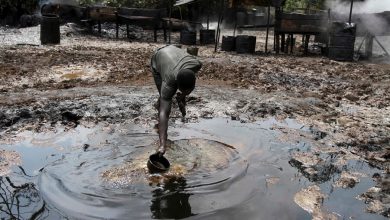Preventing oil conflict in Ogoni – by Prof. Ben Naanen
On January 4, 1993, the Ogoni protest movement was launched under the leadership of the Movement for the Survival of the Ogoni People (MOSOP) with massive demonstrations in designated centres in Ogoni. Following the protests, Shell suspended operations in Ogoni three months later. Shell and the Nigerian government were held accountable by MOSOP for the environmental degradation and marginalisation of Ogoni.
Shell became the target of an international campaign by MOSOP. The campaign intensified with the execution of MOSOP leader, Ken Saro-Wiwa and eight other MOSOP activists by the government of Gen. Sani Abacha on November 10, 1995. This followed the heinous murder of four prominent Ogoni leaders in April 2004. There were demonstrations against Shell in several cities across the world, especially in Europe and North America. The campaign inflicted considerable damage to the image of the international oil giant, forcing it to re-examine some of its policies and practices.
Unable to ensure the resumption of oil production in Ogoni and faced with constant international embarrassment and sometimes diplomatic face-off engendered by the Ogoni issue, the Nigerian government under the late President Umaru Yar’Adua revoked Shell’s concessions in Ogoni in 2006. Large sections of the Ogoni community saw the revocation as a triumph and a vindication of MOSOP’s international campaign which took MOSOP activists to distant corners of the globe. Not a few members of the Ogoni elite saw continuing suspension of oil production in Ogoni as loss to the Ogoni community.
Consequent to the revocation, the elite Ogoni Contact Group (OCG), which was connected to MOSOP, held series of meetings to draw up a proposal which would be presented to any company wanting to take over Shell’s operatorship. The draft MoU remains in existence to this day. MOSOP collaborated and accepted the draft. The thinking in MOSOP and OCG favoured a medium-sized European or American oil company to take over Shell’s concession.
The reasons for such a choice were obvious. It was felt that a Nigerian company would always get away with murder and would not make any pretensions about human rights or environmental concern. But the chosen international oil companies could be held accountable in their home countries for human rights and environmental breaches. It was for this reason it was possible to hold Royal Dutch Shell accountable by the Ogoni people. The Bodo in Ogoni community would neither have got the kind of compensation it received recently nor the proposed clean up possible if Shell were to be a Nigerian company. Shell has also committed itself to the implementation of the UNEP report on Ogoni, the main cause of delay being the Nigerian government.
On the other hand, a medium-sized company was preferred since it was felt that big companies such as Shell are too powerful to deal with.
Given such thinking in Ogoni, it became surprising when it was loudly announced some weeks ago that some Ogoni chiefs had signed agreements with a certain hardly known indigenous oil company to start oil operation in Ogoni. Granted Ogoni’s recent history, it is doubtful that any chief ever signed such an agreement. Ogoni chiefs have since been known to ensure they carry their people along when any major decision affecting the destiny of the people is being taken. The alleged deal with the obscure indigenous company broke that golden rule.
Moreover, the announcement violated the sovereign power of the Nigerian state, which is vested with the constitutional control of minerals in the country. For sure, following recent developments in international law and advocacy, especially the doctrine of free, prior and informed consent (FPIC), local communities must be consulted in an informed manner and their consent obtained freely in the exploitation of the resources of the communities. It has to be demonstrated how such communities would benefit from the resource exploitation. In other words, the issue of exploitation of natural resources is no longer an exclusive agreement between companies and governments. It is now a tripartite affair between company, government and local community.
The government can grant licence to operate (LTO) but the communities can withhold the freedom to operate (FTO). A corporate entity needs both LTO and FTO to operate. It should be emphasised that the proprietary right to issue the LTO under the Nigerian law is the sole prerogative of the Federal Government. That has been the position of the Ogoni people. The indigenous company that caused the announcement to be made violated Nigerian law and therefore liable to prosecution.
The announcement was made on the basis of fraudulent claim. The local company had told the chiefs it had won the bid for the oil block OML 11 where the Ogoni fields are located. OML 11 is one of the largest oil blocks in the country where other companies are also operating and to the best of our knowledge, the government has not announced such concession unless there is a secret deal between the Ministry of Petroleum Resources and the company in question. Of course we know the potential consequences of such a secret deal, if any.
As expected, the announcement has created consternation and a near crisis situation in Ogoni. MOSOP has distanced itself from any contact with the alleged oil company. So has KAGOTE (another major civic group in Ogoni which midwifed MOSOP) as well as other sections of the Ogoni elite. But the company has gone ahead to compromise the local youth groups who are jostling to have a piece of the illusive oil dividend.
There are several weighty reasons why the alleged indigenous company cannot operate in Ogoni. First a background check shows that the company is apparently a brief case company with neither the financial nor technical capacity to undertake any meaningful upstream oil operation. Second, as indicated, the company does not fit the profile of the kind of company that the Ogoni people want. Third, the company is taking the Ogoni people for granted and trying to divide them and pitting sections of the youths against the rest of the people. It has dangled cheap and venal carrots before the youth and the chiefs in order to have its way. Ogoni people are not so gullible to fall for such cheap bait.
On the other hand, it is altogether possible that this little known company is being used as a front by powerful forces in the oil industry. Whichever way, deceit will not work.
For certain, Ogoni wants the resumption of oil production. The time has come for the leaders of the area to re-examine their position. That decision may be taken sooner than later. But that is only under the right condition, through the right process and with the right companies. The implementation of the UNEP report is part of that “right condition”. Moreover, other companies interested in operating in the area will also be given the opportunity to discuss with the people. The obscure company trying to cause confusion in Ogoni hardly fits into the picture.
• Naanen, a Professor at the University of Port Harcourt, is the founding Secretary and later, Chairman of MOSOP Provisional Council, 2012-2013




